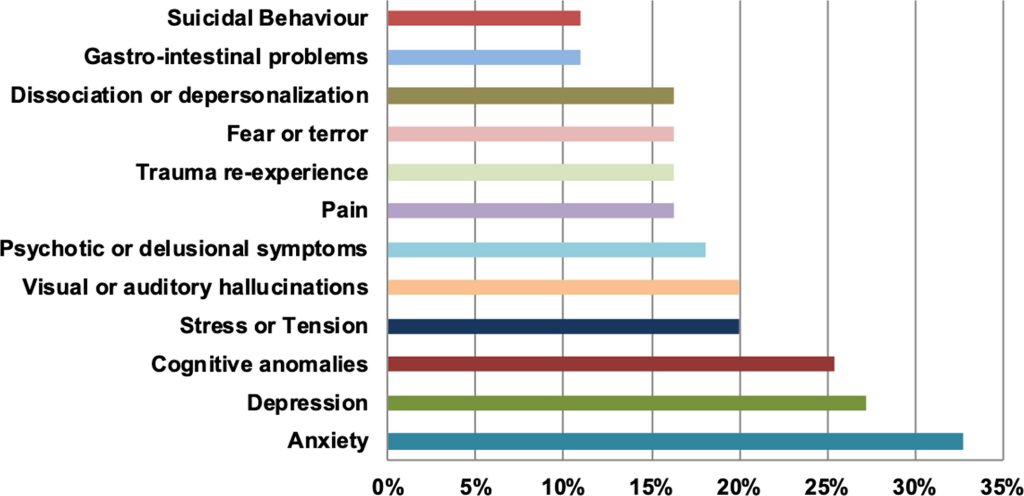Imagine finding a free, at-home remedy for stress and mental health issues. Sounds perfect, right? That’s how many people view mindfulness meditation. Rooted in Buddhist traditions, mindfulness encourages you to focus on your present thoughts, feelings, and sensations. It’s gained immense popularity as a cure-all for modern life’s pressures. But what if this seemingly harmless practice could actually make things worse?
A Practice as Old as Time… With Age-Old Warnings
Meditation isn’t new. The earliest written evidence, found in India, dates back over 1,500 years. Even then, ancient Buddhist texts like the Dharmatrāta Meditation Scripture didn’t just praise meditation’s benefits. They also documented some troubling side effects:
- Symptoms of depression and anxiety
- Cognitive issues resembling psychosis
- Feelings of dissociation and depersonalization (where the world seems “unreal”)
These weren’t just isolated incidents. Fast forward to today, and modern science is uncovering similar concerns.
The Numbers Don’t Lie: Meditation’s Dark Statistics
Recent research paints a sobering picture:
- A 2022 study of 953 regular meditators in the US found that over 10% experienced negative effects lasting at least a month and significantly impacting their daily lives.
- A comprehensive 2020 review of 40+ years of research revealed the most common adverse effects:
- Anxiety and depression (topping the list)
- Psychotic or delusional symptoms
- Dissociation or depersonalization
- Intense fear or terror

Here’s the kicker: these problems don’t just affect people with pre-existing mental health issues. Even those new to meditation or practicing moderately can develop long-lasting symptoms.
Not Just a Modern Phenomenon
The Western world has long had inklings of meditation’s potential downsides. Back in 1976, Arnold Lazarus, a pioneer in cognitive-behavioral therapy, warned that indiscriminate use of meditation could trigger “serious psychiatric problems such as depression, agitation, and even schizophrenic decompensation.”
The Mindfulness Industrial Complex
So, why aren’t we hearing more about these risks? Enter the booming mindfulness industry. In the US alone, it’s worth a staggering $2.2 billion. Mindfulness apps, books, and coaches rarely mention potential dangers.
Professor Ronald Purser, both a management expert and ordained Buddhist teacher, calls it “capitalist spirituality” in his 2023 book “McMindfulness.” Even Jon Kabat-Zinn, a key figure in popularizing mindfulness, admitted in 2017 that “90% of the research [into the positive impacts] is subpar.”
Overblown Promises and Media Blind Spots
The enthusiasm for mindfulness often borders on the religious. Kabat-Zinn has suggested it could transform “who we are as human beings and individual citizens, as communities and societies, as nations, and as a species.” Many practitioners, even non-religious ones, believe meditation can increase global peace and compassion.
The media hasn’t always provided balanced coverage. While some outlets have reported on potential risks, major studies with less positive results often get overlooked. Case in point: a massive 2022 study of over 8,000 UK schoolchildren found that mindfulness failed to improve mental wellbeing and may have even harmed those at risk for mental health problems. This $8 million study received surprisingly little attention.
The Ethical Dilemma
Given what we know, is it ethical to promote mindfulness without mentioning its risks? Many would argue no. Yet, countless instructors remain unaware of or dismiss these potential dangers. People who’ve experienced adverse effects often report that their teachers didn’t believe them, insisting they should just keep meditating.
A Call for Caution and Research
The good news is that research on safe meditation practices is underway. However, we’re still in the early stages of understanding how meditation affects consciousness and the mind.
For now, if you’re considering mindfulness as a wellbeing tool, educate yourself:
- Explore websites created by meditators who’ve experienced serious side effects
- Check out academic handbooks with sections dedicated to this topic
- In the US, there’s even a clinical service led by a mindfulness researcher for those who’ve experienced acute or long-term problems
The bottom line? Meditation can be beneficial, but it’s not risk-free. As with any wellness practice, being informed is key to staying safe and reaping the rewards.


0 Comments